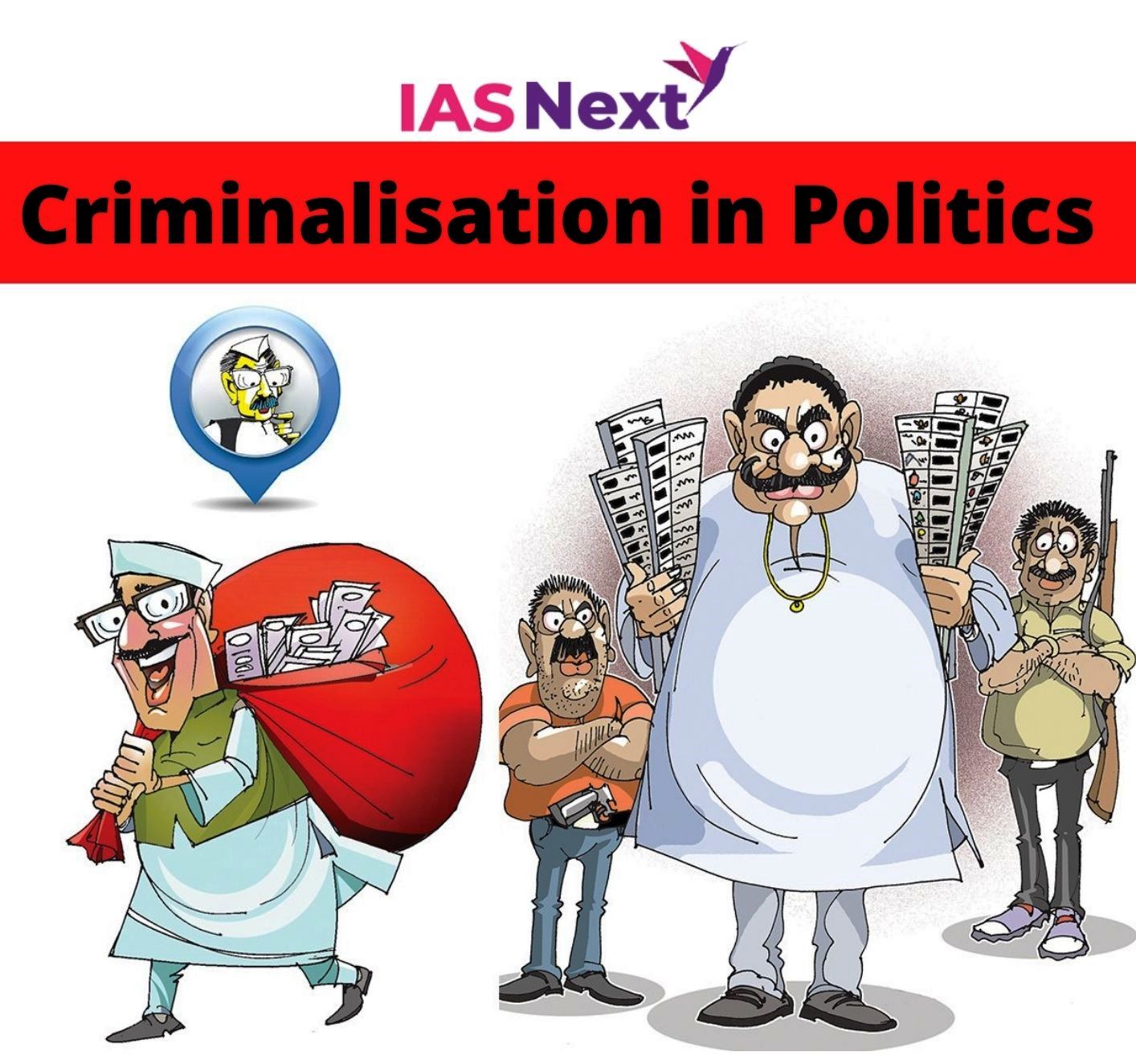CURRENT AFFAIRS
Get the most updated and recent current affair content on Padhaikaro.com
Criminalisation of politics in India
- IAS NEXT, Lucknow
- 21, Oct 2021

Ahead of UP Elections, political parties are now having a rethink on aligning with those who have a criminal background but also enjoy influence in their areas.
Background:
The Supreme Court had warned the Parliament about the advent of criminals in politics and also imposed fines on major political parties for covering up from voters the criminal past of the candidates they fielded in the Bihar Assembly poll last year.
What had the Court said in its February 2020 judgement?
The Supreme Court had directed political parties to publish the criminal history, if any, of their election candidates on the homepage of their websites under the caption ‘Candidates with criminal antecedents’ within 48 hours of their selection.
Why is this a cause for concern?
- There are a total 4,442 cases pending against legislators across the country. Of this, the number of cases against sitting Members of Parliament and members of State legislatures was 2,556.
- The cases were pending in various special courts exclusively set up to try criminal cases registered against politicians.
- The cases against the legislators include that of corruption, money laundering, damage to public property, defamation and cheating.
- A large number of cases were for violation of Section 188 IPC for wilful disobedience and obstruction of orders promulgated by public servants.
- There are 413 cases in respect of offences, which are punishable with imprisonment for life, out of which in 174 cases sitting MPs/ MLAs are accused.
- A large number of cases were pending at the appearance stage and even non-bailable warrants (NBWs) issued by courts have not been executed.
- Highest number of cases are pending in Uttar Pradesh.
What does the RPA say on this?
Currently, under the Representation of Peoples (RP) Act, lawmakers cannot contest elections only after their conviction in a criminal case.
Section 8 of the Representation of the people (RP) Act, 1951 disqualifies a person convicted with a sentence of two years or more from contesting elections. But those under trial continued to be eligible to contest elections.
Main reasons for Criminalization:
- Corruption
- Vote bank.
- Lack of governance.
What is the way out?
- Political parties should themselves refuse tickets to the tainted.
- The RP Act should be amended to debar persons against whom cases of a heinous nature are pending from contesting elections.
- Fast-track courtsshould decide the cases of tainted legislators quickly.
- Bring greater transparency in campaign financing.
- The Election Commision of India (ECI) should have the power to audit the financial accounts of political parties.